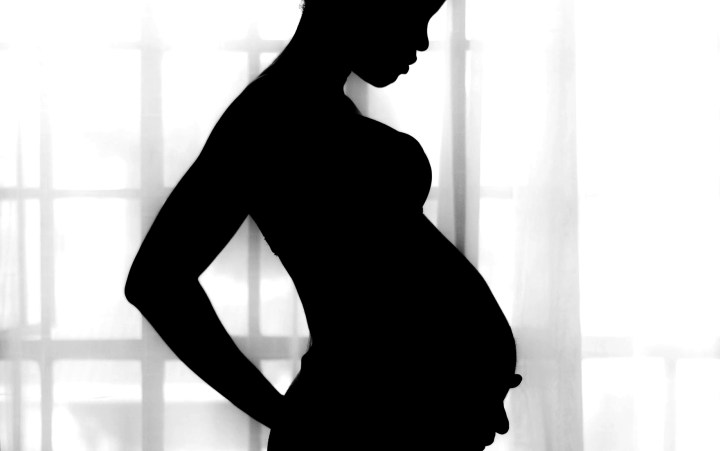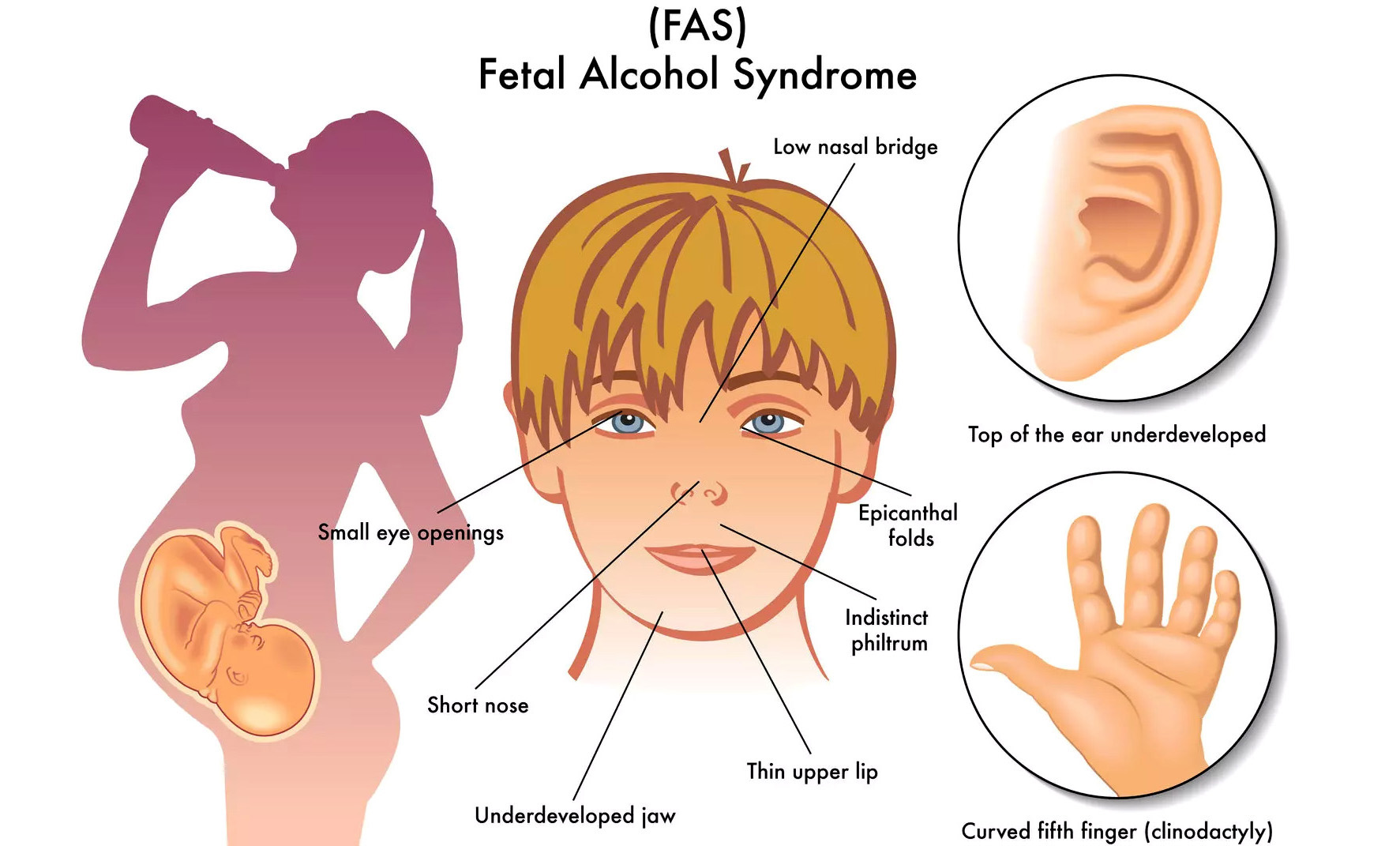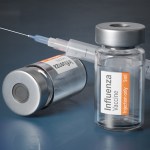PUBLIC HEALTH
SA needs more programmes to address foetal alcohol spectrum disorder, say experts

September is Foetal Alcohol Spectrum Disorder Awareness Month. South Africa has the highest prevalence of FASD in the world, and experts have called for more education, support and prevention programmes to address the problem.
‘I was an emergency foster mother, and one day in 1993 they phoned me up and asked me to take this little baby. When she came, first of all, she couldn’t suckle, and she was very agitated. I phoned the maternity hospital, and they said not to worry about it, because she probably wouldn’t last the weekend. When I took her for her first check-up, that’s when I found out that she had foetal alcohol syndrome (FAS).”
This was Vivien Lourens’s introduction to FAS, which is a condition under the broader umbrella of foetal alcohol spectrum disorder (FASD).
FASD is a term for a range of physical, cognitive and behavioural disorders directly caused by the mother drinking during pregnancy. The disorders include:
- Foetal alcohol syndrome;
- Partial foetal alcohol syndrome;
- Alcohol-related neurodevelopmental disorder; and
- Alcohol-related birth defects.
Lourens said she did not know anything about FAS at that time and started researching it, together with her husband, Peter Lourens.
“I couldn’t get any help in this country. I wanted help with dealing with the child, not to know the statistics, but the practical help,” she said.
Understanding FASD
Historically, medical professionals did not recognise the risks posed by alcohol use during pregnancy. Dr Marlene de Vries, from the Department of Psychiatry at Stellenbosch University, explained that it was only after the first prevalence study in South Africa was conducted in 1997 that professionals began to comprehend the scale of the problem.
Alcohol is a teratogen, which means it can interrupt the normal development of an unborn baby.
“Alcohol is like a poisonous substance for the unborn baby and the developing cells of the baby. It can cause damage to any part of the unborn baby’s body but because the brain starts developing soon after conception, and develops right through pregnancy, the brain is the most vulnerable organ for this alcohol-related damage,” said Dr Leana Olivier, the CEO of the Foundation for Alcohol-Related Research (FARR).
Children born with FASD always have some form of permanent irreversible brain damage and other organs can also be affected, including eyes and ears — or there could be skeletal problems, she said.
There is no safe period during pregnancy to drink alcohol, and there is no safe amount of alcohol to consume throughout pregnancy, Olivier said.
The situation in South Africa
The World Health Organization (WHO) puts the global FASD rate at less than 1%. However, according to the WHO and completed research, the rate in South Africa could be as high as 11%.
“That might be a very conservative rate and we don’t actually know because no prevalence studies have been done in KwaZulu-Natal, Mpumalanga and North West province,” Olivier said.

Dr Marlene de Vries from the Department of Psychiatry at Stellenbosch University. (Photo: Supplied)
Research conducted by FARR indicates that there are communities, specifically in the Northern Cape, where the prevalence rate is as high as 28%, and 31% in a specific community in the Western Cape, she said.
“Our prevalence rates are by far the highest in the world.”
Read more in Daily Maverick: Foetal Alcohol Syndrome: ‘Not enough support for rural women’
FASD is an underreported condition in South Africa, specifically in the middle and high-income categories.
“There is still the myth that it is only people from certain cultural groups or income groups that are at risk of having FASD,” Olivier said.
Because FASD is vastly underreported, there are limited services available, including diagnostic services. Olivier explained that it is a complex diagnosis to make, requiring a specially trained doctor, psychological testing to rule out autism or injury during birth, and an in-depth interview with the biological mother to make sure that she had no illnesses or problems during pregnancy which could have damaged the development of the child. Only after putting these three results together can a confirmed diagnosis be made.
The high prevalence of FASD in South Africa has been attributed, in part, to the “dop system”, in which farmworkers were paid with alcoholic beverages. However, De Vries explained that this was an oversimplification of the issue.
“That system was outlawed long ago, and there are many other issues that we don’t discuss, like the country’s drinking culture, the availability of alcohol, illegal shebeens operating in neighbourhoods, and even mobile shebeens delivering alcohol to people’s doorsteps,” she said.
South Africa has the highest alcohol consumption rate (11 litres per capita) in Africa and one of the highest in the world.
Why women drink
Drinking during pregnancy is common in many countries, including South Africa where women consider drinking to be a coping strategy for their socioeconomic and socio-political realities, De Vries said.
“There are many other factors that contribute to drinking while pregnant: poverty, domestic violence, or having a partner who drinks heavily,” she said.
One reality is that partners, family and friends often are pregnant women’s downfall because they encourage or even force them to drink.
“If women do not spend time with their drinking friends any more, they can become socially isolated. Mental health factors such as depression, feelings of hopelessness and powerlessness also contribute to women’s drinking patterns,” De Vries said.
Some women say they drank during pregnancy because they didn’t know about FASD and the harmful effects of alcohol, or they didn’t know that they were pregnant.
“She’ll tell you that she only realised that she was pregnant when she was six, eight or even 12 weeks pregnant and would have just continued to use alcohol normally, during that period, and then sadly, unbeknownst to her, the damage was already done,” Olivier said.
A lack of services to address the issue
Experts have called for more holistic and comprehensive approaches to tackle the FASD problem in South Africa. De Vries said there was no specific policy for FASD in South Africa.
There was also a lack of willingness to recognise FASD as a widespread public health problem in South Africa.
“Generally, in our country, there is no acknowledgement of the extent of the problem,” she said.
There are limited rehabilitation and support services for pregnant women who have disclosed that they are drinking, and once a child is born and presents with problems, there are, again, few services and little support, Olivier said.
“I strongly believe that if we look at the resources that we have available, even with our limited resources, we can move forward positively. But only if we acknowledge the extent of the problem, make people more aware of this, and see how we can develop a policy,” she said.
Education, not punishment, is key to winning the FASD fight
Recently, during an awareness event around FASD, the deputy social development minister, Hendrietta Bogopane-Zulu, made headlines when she called for mothers who consume alcohol during pregnancy to face criminal charges.
De Vries said criminalising mothers would only shame and further stigmatise them and Lourens echoed the sentiments.
“It is definitely not the answer. When you punish a mother and send her to prison, who is going to look after the child for a start? More often than not, the mothers come from a poor background. I really can’t understand her thinking,” Lourens said.
Olivier said instead of blaming and shaming women, they need to be supported, with services in place to assist them.
“If we’re going to take that stance of prosecuting women or whatever, we’re just going to drive this condition underground, instead of helping people who are crying out for help,” she said.
FARR has 13 projects in Free State, Western Cape, Northern Cape and Eastern Cape, offering awareness, prevention, management and diagnostic services.
“We are available online or telephonically to give support and guidance to professionals, parents of children with FASD and individuals living with FASD as well,” Olivier said.
Lourens said the only people who could help her in 1993 were in the US and Canada, and the lack of help in South Africa led her and her husband to establish the Foetal Alcohol Syndrome Information Centre (Fassic) for people who needed support and help. Lourens has also written a book, Living With Fetal Alcohol Syndrome: Our Journey with Tisha, which gives practical tips on raising a child with FAS.
FASD through the lens of an adult
The Lourens family adopted a baby with FAS named Tisha, who is now 27.
“She can’t read and write, she’s been to special schools, but they haven’t been able to teach her. Everything that she wants to buy costs R5, because she’s got no concept of money — now in a community that doesn’t have the backup she would have just fallen by the wayside, and who knows what would have happened to her,” Lourens said.

(Image: Wikipedia)
Before the Covid pandemic, Tisha had a full-time job, and Lourens acknowledged that she is “one of the lucky ones” as typically this is not the case for people living with FAS.
Olivier and De Vries said that people tend to talk about children with FASD but forget that these children grow up to become adults. There are communities with high prevalence rates of FASD, and the lack of job opportunities, shelter and ongoing care for them is a massive problem in South Africa, said Olivier
The way forward
De Vries said there was no simple solution and that we need to find innovative ways to practically support high-risk pregnant women to stay sober during pregnancy.
“However, we need prevention programmes informing the broad community about the detrimental effects of alcohol on the foetus but also programmes focusing on high-risk women of childbearing age to support and enable them to stop drinking for the duration of their pregnancies,” she said.
To do this, the government departments of health, social services, education and justice should work together and develop clear pathways for referral and service delivery.
In addition, more emphasis should be placed on the importance of partner support, De Vries said.
“Men should take co-responsibility for the wellbeing of their children, starting in pregnancy by supporting their partners emotionally to maintain sober habits during pregnancy and whilst breastfeeding.”
Involving fathers more by encouraging them to attend the ultra-sound scans of their partners and making a greater effort to include FASD prevention information at family planning clinics are also viable options.
A collective approach of family, friends and communities who value unborn children and support women was necessary, Olivier said.
“There is a saying that it takes a village to raise a child; I found that it actually takes a village to help a woman have an alcohol-free pregnancy,” she said.
Lourens said the country needs more residential homes, sheltered workshops and opportunities for people with FASD.
“You’d be surprised at the things that people with FASD can do, but they just need the opportunities,” she said.
At the end of the interview, Tisha had a message to share: “Don’t drink alcohol while you are pregnant.” DM



















Comments - Please login in order to comment.